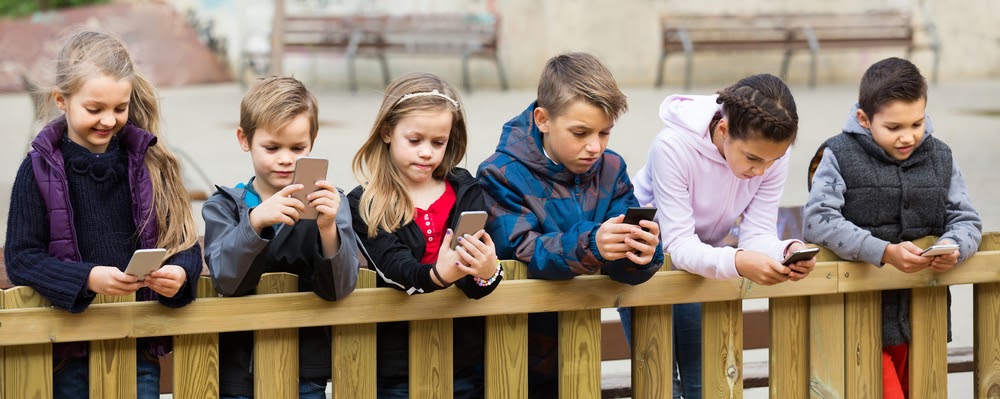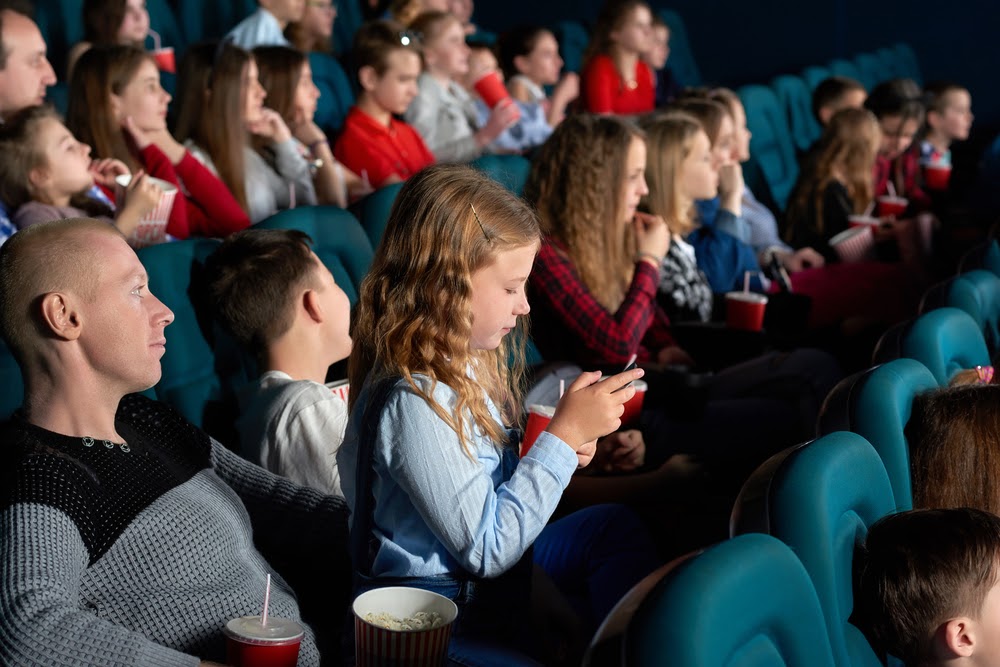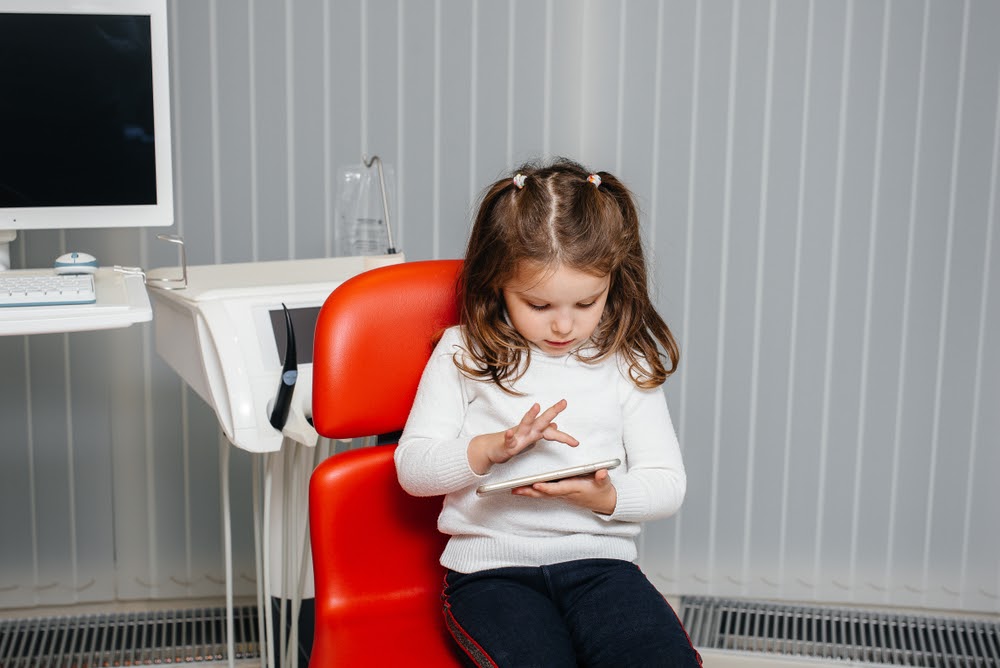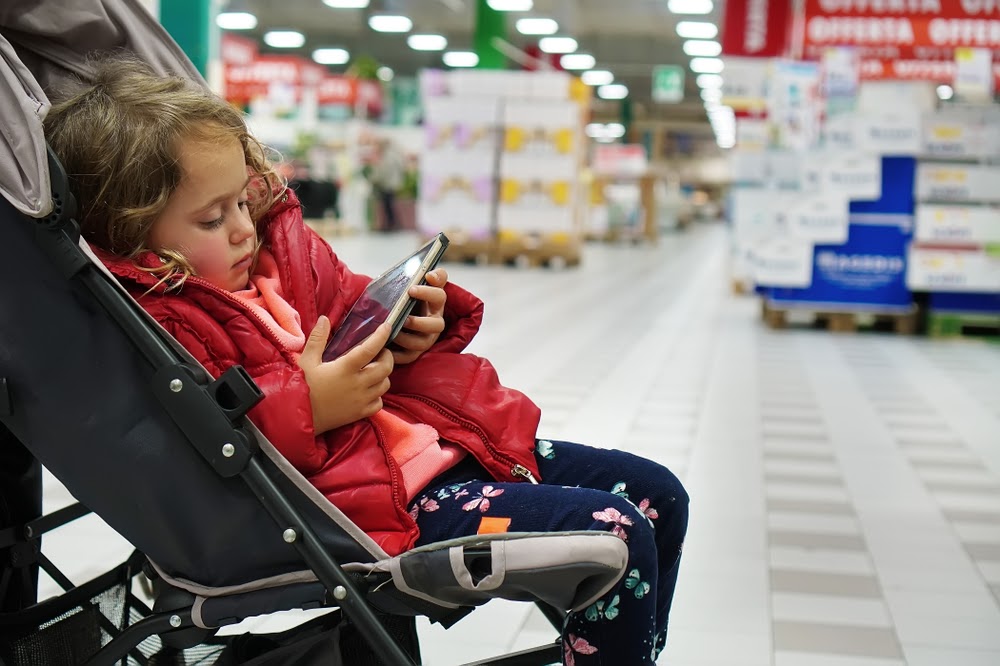
Handheld technology devices like smartphones and tablets let children and adults socialize, watch movies, stream music and play games from anywhere. Parents often download educational apps for kids to ensure that children can practice core skills like reading and math facts while parents are running errands.
While apps provide convenient entertainment options and also could help complement classroom learning in different subject areas, tablets and phones also could be a distraction when used in public. Parents often understand when not to hand over the device, but children should begin to learn technology etiquette, too.
One of the etiquette tips from Emily Post regarding phone etiquette for kids also applies to everyone: “Be courteous to those you are with; turn off your phone if it will be interrupting a conversation or activity.”
Here are a few common situations where parents often hand off that phone to their child and the etiquette that they should follow in each situation, because even educational apps for kids aren’t ideal to use everywhere.

Rules for the Movie Theater
Some families arrive in the theater at least a half hour before the movie is scheduled to begin; while music and the screen trivia can be fun for a short term, eventually the same screens start to repeat.
Children may enjoy using educational apps to practice addition, subtraction, multiplication facts or even learning their sight words and letters. Before the lights dim, these apps can be fine to keep children entertained.
Teach children to:
- Keep the volume low
- Hand over the phone when the lights dim
- Turn the phone on silent (if they are old enough to know how)
Before the movie starts, most theaters will show a screen reminding all patrons to silence their phones and devices. Make sure children understand that playing a device after a movie begins—even if they are bored with the movie—isn’t an option. The light from the phone will distract other movie goers.

The Dentist and Doctor’s Office
Phones go everywhere, and it isn’t uncommon to see a parent in the waiting room handing the phone to their child to keep them happy and entertained. When children are sick or scared (maybe they are about to get a shot), the device could keep them busy and less focused on the visit.
Some parents may be at their own doctor’s appointment and need to take their child with them. A sitter might not be an option. Typically, phones can be used in the waiting room.
However, at dental offices or other offices where x-ray equipment is used, phones may need to be turned off. Parents should watch for signs related to phone use.
If children are sitting in a checkup room with their parents, they should be respectful with the phone. Ideally, the volume should be muted. Apps—even those that are for educational purposes—shouldn’t distract the doctor from the appointment.
- Silence or mute the sound on games and apps
- Instruct children when phones cannot be used
- Show older children any signs that outline phone use. They will need to pay attention to these signs, too!
Consider Ditching the Phone When Shopping at Stores
Grocery stores and department stores aren’t places where parents need to be too guarded with phone use for their children. The most important etiquette tip for children is to keep the volume on the phone to a minimum.
At stores, children won’t walk around playing on phones (that’s dangerous), but parents may give them devices when they need to try on an outfit or if children are small enough to sit in the shopping cart. Educational apps for kids can keep younger children occupied as their parents are grocery shopping.
However, before parents hand over their phone to let children play, they should use trips to stores for other educational activities. While apps that help children with sight words or letter identification could be beneficial, playing sight word scavenger hunt during a grocery trip could be even more fun and more socially engaging, too.
If possible, ditch the phone during grocery runs and while shopping. Instead opt for these games:
- Sight Word Scavenger Hunt. Bring a list of sight words and have children find each one. Maybe they earn a prize when all words are scratched off.
- Product Rhymes. Pick a product on the shelf and have children come up with a silly rhyme.
- Grocery Bingo. Parents can print out a blank card on the site Adventures in Familyhood. Just write in any product or store item (like cart or bag) in each box. Children will need to scratch off each item as they find it. When they call Bingo, they win!
- Ingredient Bingo. This is another take on the grocery Bingo game. However, children will need to read the ingredient lists on products parents purchase. This is a fun game to teach children about what’s in their food and practice reading skills.
- This or That? Have children compare the prices of generic items versus the name brand item. Ask them what one is more expensive. Then encourage them to read the ingredients. Can they find any differences? This is an activity for older children.
If a child is playing on a smartphone at the store, help them understand that it’s appropriate to turn off the phone or hand it to their parents once the cart hits the checkout lane. Too many people use their phone in the line without even engaging with the checker. Kindness is about being present. Help children understand this social rule.
Siblings Concerts and Games
Many parents have likely sat in the stands or in the audience only to look around and see siblings of other children with their face seemingly stuck to a screen. Sometimes children get bored at the activities of their siblings. Sometimes they don’t understand what’s going on and have no idea how to keep still.
The phone can be an easy solution, and parents may resort to using the device and letting children play educational games when they are at wit’s end. Yet, in some instances, the phone and the light of the phone can be a distraction to others.
Turn off the phone and don’t make the phone an option for children when guests are instructed to turn off their devices. This is usually asked of guests of concerts, recitals and school plays. Help children understand why these rules are important, and encourage them to focus their attention on their sibling; parents also can make a game out of spotting their sibling’s friends on the stage.
At games or sports practices, phone use might not be such a big issue. However, during some portions of the game—like when the team is up to bat—parents may try to gently encourage children to watch the action. Again, focus can be on the sibling.
Can Children Use Reading Apps in Public
Reading apps like Readability require children to read aloud for lessons. In many public areas, this could be distracting to others. The reading lesson might not be the best option to use in stores or in waiting rooms.
However, at sports practices, children and parents may be able to find a more secluded area where a child could practice reading while their sibling practices. This may be a great way to find some extra time to read, too.
Children who want to use Readability while sitting in the cart at the store or in a waiting room, though, could plug in their headphones and use the Storytime function of the app. Storytime lets children hear narrated stories. All books in the Readability library now include this option.
Interested in downloading Readability to help children practice their reading skills and gain confidence and proficiency? Sign up for a free seven-day trial today!

 Español
Español